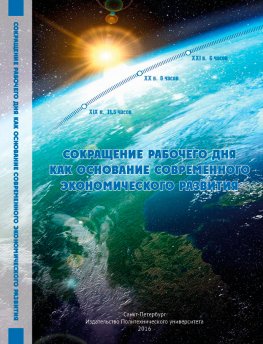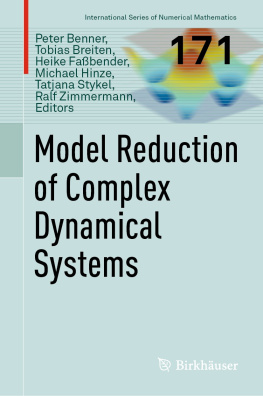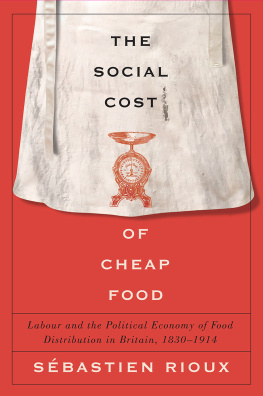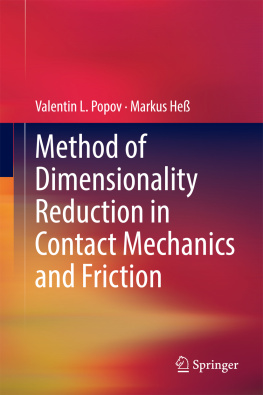WORKING DAY REDUCTION AS THE GROUND OF MODERN ECONOMIC DEVELOPMENT
Translated from Russian to English
from the following issue:
.: , 2016
2021
R e v i e w e r s:
A. S. Kazyonnov, Doctor of Philosophy., Professor of the SPbPU
O. A. Mazur, Doctor of Economics, Rector of the NIEML
A u t h o r s:
A. V. Zolotov, M. V. Popov, M. V. Buzmakova,
A. A. Bylinskaya, N. G. Glushich, T. N. Demicheva,
E. V. Lyadova, I. Y. Malyavina, I.N. Polushkina, N. A. Udalova
T r a n s l a t o r:
A. M. Podjidaev
/ . . . . . . : - . -, 2016. 198 . (Working Day Reduction as the Ground of Modern Economic Development / edited by A. V. Zolotov. SPb. : Polytech Institute publishing house, 2016. 198 p.).
In this monograph the role of working day reduction in ensuring such a direction of modern economic development as overcoming significant social and economic inequality, depending on kinds of fulfilled labour in the production or nonproduction sphere, is studied. The necessity of priority of working day reduction of employees, occupied in production, over reduction of employment in this sphere what will bring closer introduction of a six-hour working day and then realization of the broadcast of J. M. Keynes about introduction of three-hour shifts is substantiated.
This monograph is for students, post-graduates, scientists, officers of state and municipal authority, participants of trade union movement.
Zolotov A. V., scientific editing,
2016
Peter the Great St. Petersburg
Polytechnic University, 2016
Contents
The problem of economic development, initially related to overcoming social and economic backwardness of countries which became politically independent, has a universal character in reality. The economies of countries, leading in volumes of industrial production, in generation and realization of innovations, are in constant development too what ensures their leadership. Moreover, their progress is exactly an example to follow, it creates prerequisites for rapid development of countries which are behind nowadays.
Economic development is a many-sided process that does not come to growth of the level of material benefits consumption only. That is why theoretical approaches, connected to studies of the dynamics of the social product, touch upon only some aspects of the process.
Within analysis of economic development studies of not only material conditions of the life but ways of peoples activities and economic activities, first of all, become more and more relevant. The way labour in production, in the nonproduction sphere, and activities in the sphere of free time correlate in the life of members of the society, determines formation of individuals abilities.
The authors proceed from the statement that the correlation of these forms of activities is determined, in the end, by the level of social labour productivity that grows naturally releasing time for activities immediately connected to development of peoples abilities from production. Along with this decisive factor there is another one the modification of distribution of different social functions among people. Interaction of these factors conditions normal working time in production, in the nonproduction sphere, and, consequently, the magnitude of nonworking time. In the monograph the main attention is paid to the studying this interaction determining prospects of modern economic development.
In accordance with the subject matter the authors make the detailed quantitative analysis of the dynamics of joint working time funds in production and the nonproduction sphere, duration of different periods of working activities of workers beginning with the magnitude of a workday. It allows to present modern tendencies of economic development specifically and to characterize its prospects.
Factual material to be analyzed is restricted with data of several advanced economies and does not touch upon the situation in the Russian economy. There is no doubt that general regularities of economic development spread on Russia too. However, to identify them it is better to draw on the experience of the countries that have not been experiencing sudden social-economic changes, like in Russia, in recent decades. Specifics of economic development of our country will be a subject of future studies.
The authors express their appreciation to Yury Markin for valuable help in formation of the idea of the monograph and its edition.
1. Reduction of the General Working Time Fund in Production and Increasing in Time of Nonproduction Activities as a Prerequisite of Economic Development
1.1. Economic Development as Resolution of the Contradiction between Formation of Prerequisites for Development of all People and Utilization of these Prerequisites by a Part of the Society
Economic Growth and Economic Development
Development as a movement from the simple to the complex is inherent in the all objective actuality including the economy, so that appearance and utilization of the term economic development has its ground.
As it is known, development has been frequently coming and comes to increasing in the quantitative determinateness of a studied object. This determinateness is very important but it is referred to the categories of the sphere of being, while deeper understanding of a subject demands comprehension of its essence. The concept of development coming through resolution of contradictions, through struggle of positive and negative tendencies corresponds to knowledge comprehending the essence.
The ambiguity of understanding development could not help showing in the economic theory.
For a long time economic progress has been evidently or not evidently identified with economic growth, i.e. with increasing in volumes of social product production (including social product production per capita) in a particular period. This approach is right because the produced social product is not only a result of item-transforming activities of the society but it is a prerequisite of social life reproduction.
The problems of economic growth became one of the central problems in the theories originated in Keynesian economics and the neo-classical teaching. Giving this significance to the problem of growth reflects, in our opinion, understanding development as an increase in some feature of an object.
Indeed, economic growth is fixed according to the dynamics of one parameter, an increase in which is interpreted as a positive appearance and a decrease is interpreted as negative. Consequently, the problem of the assessment of the mixed dynamics of several parameters, the problem reflecting, though not adequately, a simultaneous action of opposite tendencies in the economy falls away.
Negative consequences for example, pollution of the environment and also a possibility of keeping and even worsening social problems (poverty, inequality, etc.) are marked in researches of economic growth. But still these circumstances act as external ones with respect to growth.
Economic growth characterizes the dynamics of a product. It is true that the GDP includes the money assessment of not only produced goods but services, but as it is the money assessment so in its limits differences in results of item-transforming activities and activities connected immediately to development of a human disappear. To measure in relation, the commensurable needs to be brought to one quality, however, in this case it is reached by means of economically heterogeneous results.
Certainly, progress of the economic theory could not stop at the stage when development of the economy as the sphere of the social life was brought to the dynamics of a social product. Usage of the notion economic development became a reflection of the transition to a more substantial theory.
Next page






